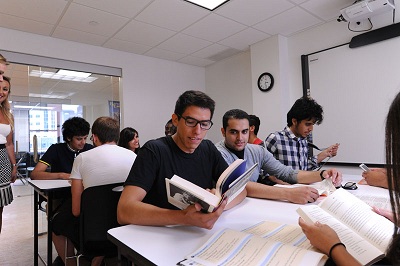A curriculum vitae is a very important piece of paper which withholds all the information about your past life events (only relevant ones) which will show an employer everything about why they should choose you.
For an average person, a job is everything to him or her. And to get a decent job, one requires good curriculum vitae. It is the candidate’s biodata and past history all gathered up in one page.
After you have graduated you should to prepare your list of accomplishments in order of the achievements which will help booster your curriculum vitae. Not only educational qualifications go in there, but also the co–curricular activities that you are good at also should go on your CV.
Having a good CV can really help you on the career ladder, don’t just expect to turn up in a country like Australia or the USA and gain employment without a CV to back up your skills and experience.
Whether you want to work abroad, or just settle into a career in your home country our tips will hopefully give you an advantage when it comes to seeking employment. You can succeed in making a good CV by viewing our top recommendations below.
Some Basic Tips for Structuring Your CV
First of all, the length of the curriculum vitae is a big deal. No one likes to read long paragraphs after paragraphs. So if you really want to impress someone by showing them your CV, then you must work on making it precise, short as well as to the point.
When someone reads your CV, it must feel like they are having an interview with you in which you are allowed to answer in two sentences or less only.
If you write pages after pages about you, then it will no longer be a CV… it will be call an autobiography. A short, precise and to the point CV is all one needs and the best thing about a CV is that you can add more achievements to the list as the years go by.
You don’t have to stick to old curriculum vitae for long time...every two years, it is going to change. And this fact is one hundred percent true that curriculum vitae is your identification. It is the document which can dictate your whole life and is an account of what are the things you have achieved.
Top Things to Avoid on Your CV
People all around the world are bound to think similarly about a job. Everyone wants their CV to look good and they want t impress a lot of people by this. But most of the time their application gets rejected.
The answer to that question is that people whose CV stands out is the only one which gets selected. In the process of making a good CV, people usually forget that they all are writing the same thing and when a person reads the same thing over and over again, it gets boring and the person starts looking for something different.
As soon as something catches his eye, he goes for it and approves it as a better one than the others. In this case, being an exception can really prove to be positive. These were some of the CV clichés to avoid.
Important Things to Include on Your CV
Let us take a look at different parts of a CV.
- Introduction - this is the part which consists of your name and your contact details. Some people also attach photographs if asked but it is not necessary in all the cases. The correct name with a correct spelling and correct details must be given. Correct and precise address must also be given just to establish confirmation.
- Educational qualifications - this is the part where a person is supposed to write his or her educational background and his or her updated educational scenario. People who are not even graduated from high shool can also have a CV .on the educational qualification part, that person can write ‘’pursuing’’ and he or she will be done.
- Curricular activities - underneath this segment, one can add his or her skills and talents or can mention about winning a championship or one can even mention about hobbies and interests. Under this section, one should write all the things he or she can do other than academically being fluent.
- Work skill and experience - people who are hiring a person often ask about his or her past job and the experiences. Those are the things which need to be mentioned here including if you have ever had an internship. If a person has no experience whatsoever or maybe is just a fresher, then there is no need of adding this segment to your CV.
Find Your Next Job
Our team have lots of information and advice regarding curriculum vitaes and frequently help people with career development around the world. Whether you want to work in the UK, Europe or worldwide, if you need any help or advice please contact us.








